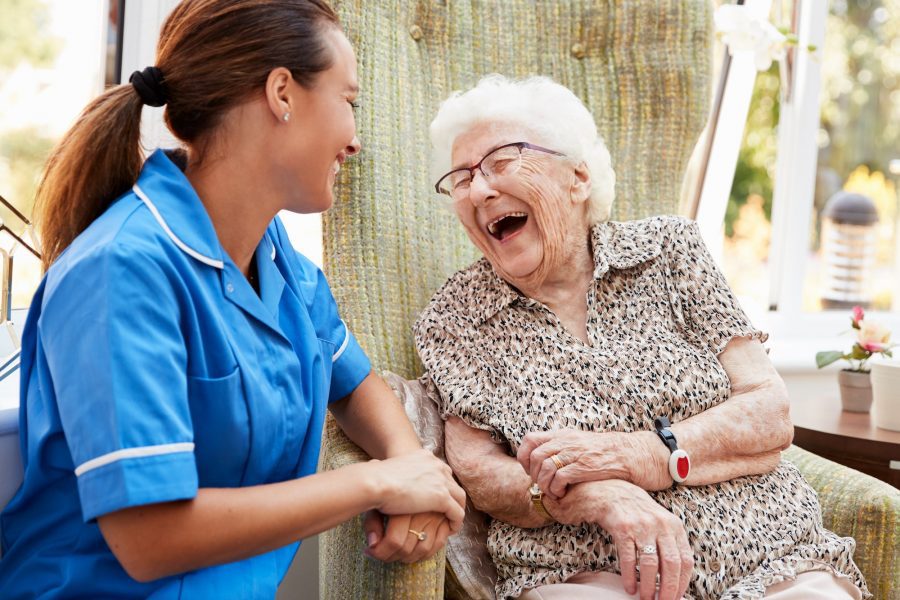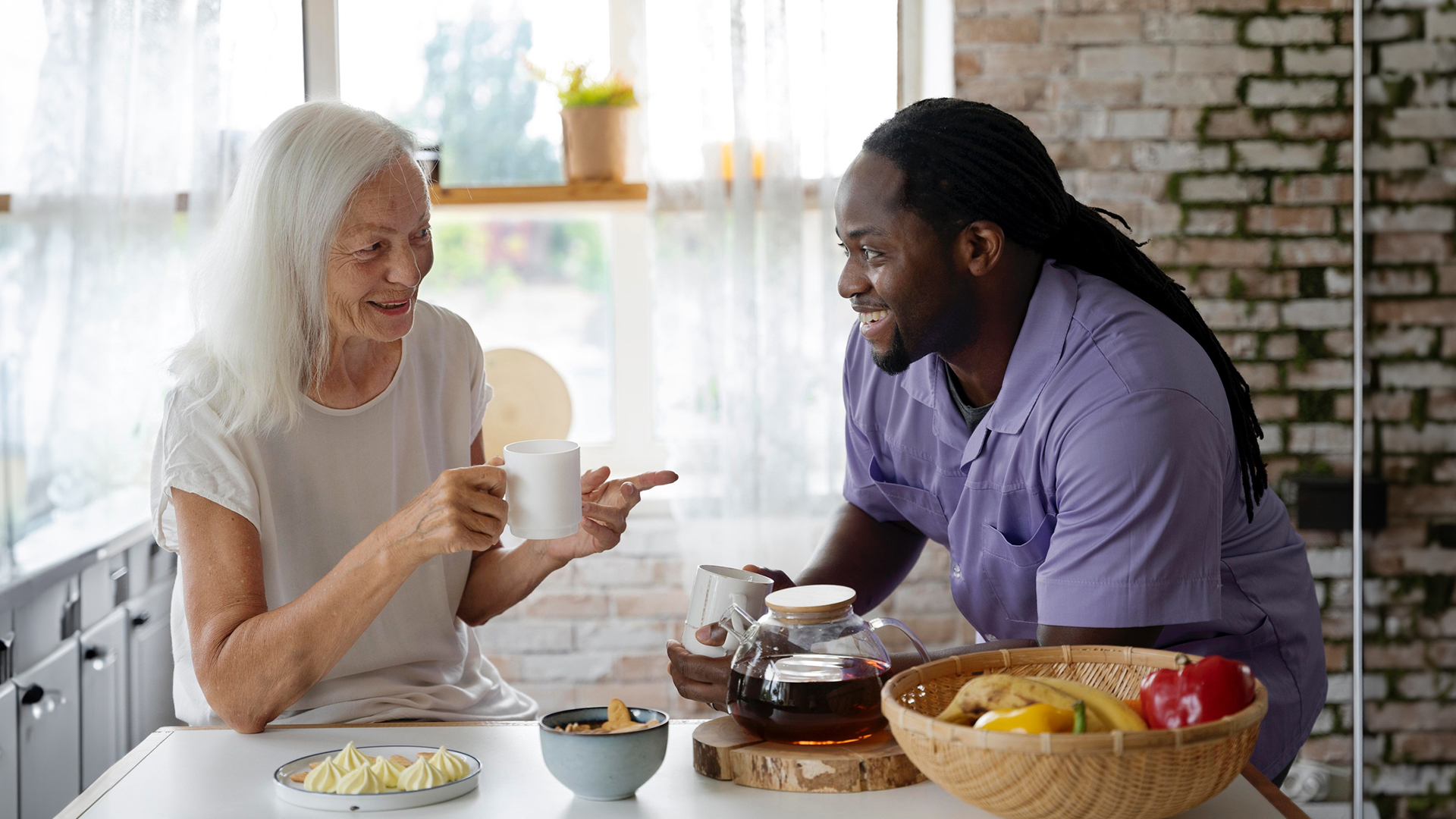Falls are a leading cause of injury and death among older Americans. Factors that increase fall risk may include mobility and balance problems, vision loss, and chronic illnesses such as ALS. Falling-related injuries can range from mild bruises to broken bones and head injuries such as concussions.
A fall risk assessment is a tool designed to evaluate an older adult’s likelihood of falling. The CDC and the American Geriatric Society recommend this yearly screening for all people aged 65 and older. Here’s what you should know about fall prevention and risk for your loved ones.
What Is a Fall Risk Assessment?
This exam usually includes the following elements to identify specific strengths and weaknesses.
- Initial screening: This phase involves asking a series of questions about overall health, including whether there have been previous falls or any trouble with balance, standing, and walking.
- Tasks to complete: These simple chores may test strength, balance, and gait. For example, a health professional may time how long it takes your loved one to stand up, walk a short distance, then sit back down.
Fall Prevention Strategies
If the assessment indicates an increased risk, ask your loved one’s health care provider to suggest fall prevention strategies to reduce the chance of injury or death. Their recommendations may include:
- Exercising to improve strength, coordination, and balance, including practices like yoga and tai chi. Your loved one’s doctor might refer you to a physical therapist who specializes in working with older adults.
- Changing any prescription or over-the-counter medications that may cause discoordination, drowsiness, or disorientation.
- Taking vitamin D for stronger bones.
- Getting a vision screening from an optometrist to diagnose or rule out conditions like glaucoma, cataracts, and macular degeneration.
- Visiting a podiatrist to have their feet checked.
- Reviewing your loved one’s home for trip-and-fall hazards like steep stairs, uneven flooring, dim lighting, slippery tiles, or specific footwear that might be too challenging to walk in.
A CDC-developed toolkit called STEADI can help caregivers prevent older adult falls, while allowing people to maintain their independence longer. These resources include essential information about reducing potential injuries and improving quality of life.
Making Aging in Place Possible for Your Family
Has your loved one fallen within the past year? Are you worried about their balance, mobility, coordination, or ability to stay steady on their feet? At Legacy Homecare LA, our professional Care Companions can improve your peace of mind by following tailored care plans for every stage and age of life. Whether your loved one is dealing with a diagnosis of Alzheimer’s, Parkinson’s, dementia, ALS, or heart disease, their agility, flexibility, and stability will improve with in-home supervision. Our services also include helping with everyday tasks such as bathing and getting dressed.
We provide premium care, allowing you to take an active role or step back as you choose. To learn more about our compassionate, exceptional Care Companions, the services we offer, and how we can help your loved one stay in the comfort of their home for longer, book a consultation with us today.






